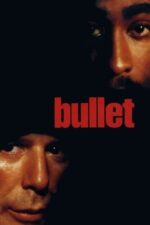Beyond the Surface: Exploring Trauma and Agency in Films Featuring Rape Victims
Okay, let's talk about something heavy, but incredibly important – how cinema tackles the complex subject of survivors of sexual assault. It’s a topic that has historically been handled with varying degrees of sensitivity (and often, frankly, exploitation), but increasingly, we see films striving for nuance and centering the survivor's experience. This isn’t just about sensationalism; it's about exploring profound themes of trauma, resilience, justice, and ultimately, agency.
For a long time, depictions felt…flat. The victim was often defined by the assault, their story ending with the violation itself. Thankfully, that’s changing. We’re seeing more films that delve into the aftermath – the psychological scars, the fractured relationships, the struggle to reclaim one's life.
Take "Demented," for example. It doesn’t shy away from the visceral horror of the assault, but its real power lies in showing the protagonist’s descent into PTSD and the ripple effect it has on her marriage. The film isn't about titillation; it's a raw depiction of how trauma can warp reality and erode trust – something that resonates deeply with anyone who understands the complexities of mental health struggles. It reminds me, in a way, of early explorations of grief in films like "Ordinary People," but applied to a different kind of devastating loss.
Then you have “Sket,” which takes a very different approach. Here, we see the rage and desire for vengeance bubbling up from a sister seeking justice for her assaulted sibling. It’s a darker path, certainly, and raises questions about cycles of violence, but it also highlights the profound sense of helplessness that can accompany such trauma – and the desperate need to do something, even if it's risky. The dynamic between Kayla and Danielle, the leader of the opposing gang, is particularly compelling; both women are shaped by their own experiences with male aggression, forging an unlikely alliance born from shared pain.
"The Caged Flower," while exploring a different kind of transgression through digital intimacy, touches on themes of vulnerability and exploitation that can be relevant to understanding the power dynamics at play in sexual assault cases. It’s a reminder that abuse isn't always physical; it can also involve manipulation and control.
And then there are documentaries like "Ghislaine Maxwell: Filthy Rich," which offer a crucial platform for survivors of unimaginable exploitation, connecting their stories to systemic failures and the pursuit of justice. These aren't just narratives of individual suffering; they’re indictments of power structures that enable abuse. "I'll Never Die Alone" echoes this sense of taking control, albeit through a more visceral form of retribution.
Ultimately, these films – each in their own way – are pushing the conversation forward. They’re challenging us to look beyond simplistic narratives and confront the uncomfortable realities of trauma and its lasting impact. They invite us to consider not just what happened, but who the survivor is beyond that experience, and what it means to reclaim agency in a world that often seeks to define them by their pain.
What do you think? Have you seen any films recently that handled this topic particularly well (or poorly)? I'd love to hear your thoughts!







































